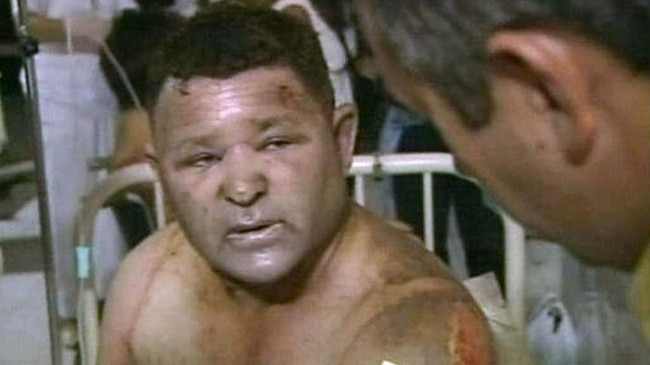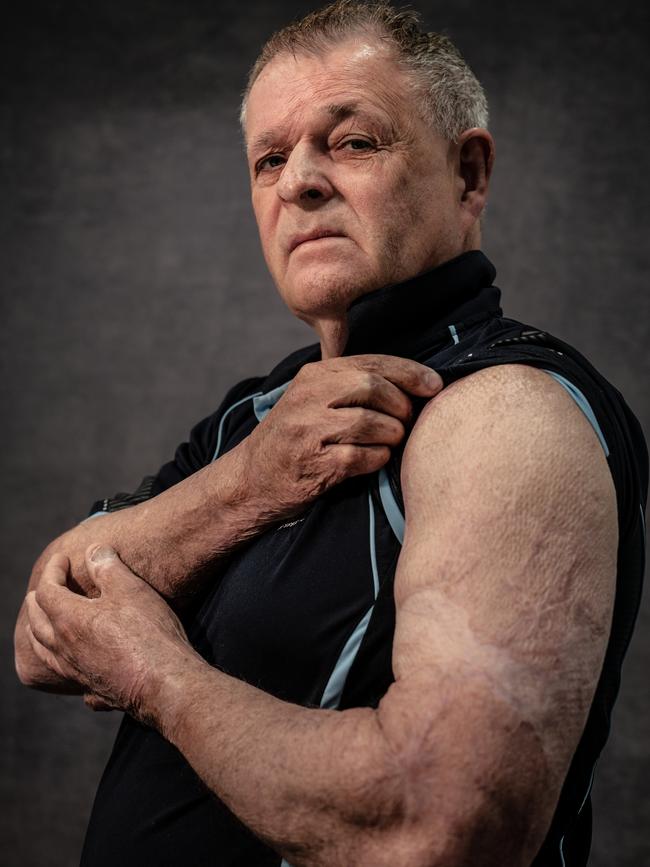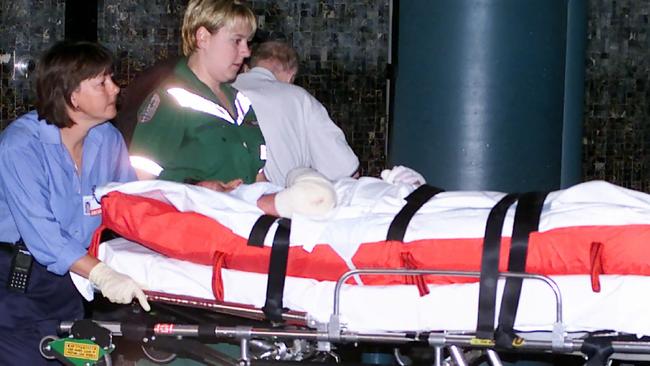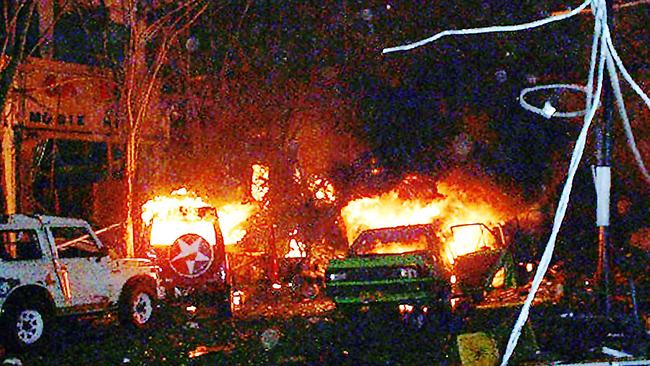Bali bombing anniversary: Survivor Peter Hughes reflects on recovery ‘rollercoaster’
Peter Hughes, who cut a defining image of the courage and tragedy of those caught in the Bali bombings, became a conduit for people who did not come home. Watch the video.
Behind the Scenes
Don't miss out on the headlines from Behind the Scenes. Followed categories will be added to My News.
With limbs swollen, burnt face and calm voice, Peter Hughes cut a defining image of the courage and tragedy of those caught in the Bali bombings.
Just hours after the terror strike that killed 202 people – including 88 Australians – Mr Hughes was sitting in a Denpasar hospital, eloquently describing the devastating scene from which he emerged but willingly went back into to rescue two female strangers.
All the while he was humbly maintaining there were others in more urgent need of medical attention than him.

A day later, the self-employed Perth roofer was fighting for his life.
He had “died” three times while in a coma as the burns to 54 per cent of his body slowly took their toll.
He would spend three were weeks in hospital, months in rehabilitation relearning to walk again, and years dealing with demons from that day.
Today, Mr Hughes readily admits it has been a roller coaster ride – both physically and mentally – but the burden of being the reluctant face of the tragedy is one he still wears with pride.

“I’m very careful about talking about that stuff, only because of people who have lost loved ones. It doesn’t get any better for them, and I’m conscious of that,” he said from his Western Australian home.
“But you are a conduit for people who have not come home, that’s for sure. That’s one thing I did notice for some who have lost loved ones, they came to know I was there and hug me as if they would hug their kids, that type of thing.
“That has happened – and still happens – but I wouldn’t change one thing. I guess if I looked back at what I did, I should have run and would have been OK, but I think I would have carried that guilt worse off because I didn’t help or do anything about it.,” he said.

For the past 20 years, Mr Hughes has used work – and now a successful roofing business – almost as a coping mechanism and distraction from the images that still haunt him, and the effects from PTSD and anxiety.
“Work deflects the bulls*** in my life. It was a good balance, good therapy and probably still is,” the now 62-year-old said.
Listen to the AFP’s new podcast Operation ALLIANCE: 2002 Bali Bombings
He has formed lifelong bonds with other victims of the tragedy and their families, wrote a book about his experiences, and become an inspirational public speaker.
But he admits there’s good days and bad.
“You can’t move on but you can deal with it, put it that way,” he said.
“There’s no cure for trauma, not unless it’s mild. Our trauma we dealt with was probably at its highest level, I think. It’s not very often you can go somewhere overseas and get caught up in a 1000 or 500 square metre lot and get totally obliterated, and wake up to it, walking into a war zone and walking out of it.
“It was horrific times but, that said, I was no different to someone recovering from a bad injury or bad situation that required hospitalisation, and I was just lucky to get through,” Mr Hughes said.
“I wouldn’t change one thing”.

And that’s the attitude he still maintains through his agreement to talk openly about that time 20 years ago, whether with families touched by the tragedy, strangers or media.
Mr Hughes and his partner of five years, Suzy, will return to Bali this year to catch up with mates and attend a small anniversary ceremony.
“I’m OK with that … that’s how you get rid of it, you talk about it,” he said.
Originally published as Bali bombing anniversary: Survivor Peter Hughes reflects on recovery ‘rollercoaster’



